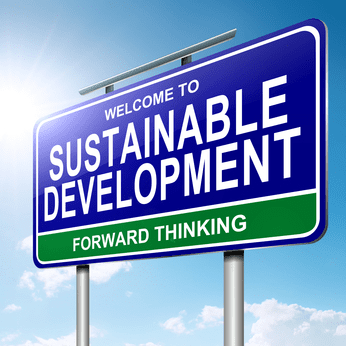 Around the world, organizations are holding themselves to new standards with regards to environmental sustainability practices. Consumers are looking to buy from companies that can prove they are practicing environmentally sustainable production. On the other hand, manufacturers are increasingly being required to adopt green practices by their customers, who are basing their purchase decisions on not only quality and price of product but also in meaningful practices that have a positive impact on our environment.
Around the world, organizations are holding themselves to new standards with regards to environmental sustainability practices. Consumers are looking to buy from companies that can prove they are practicing environmentally sustainable production. On the other hand, manufacturers are increasingly being required to adopt green practices by their customers, who are basing their purchase decisions on not only quality and price of product but also in meaningful practices that have a positive impact on our environment.
These organizations are making the choice to hold themselves accountable to these standards. This is the difference between organizations with a sustainability mission and organizations with FDA compliance regulations. For example, organizations complying within FDA regulations are being held accountable by the government. Sustainable organizations are being held accountable by their mission. This is the only difference. ERP helps both maintain accountability.
Sustainable Manufacturing and Production with ERP Systems
With the increasing need for sustainable approaches in manufacturing, organizations need to adopt strategies and solutions that will help them come up with competitive differentiation. Manufacturers can use ERP systems to extend their existing modules, as they progressively integrate sustainable practices in production.
There are a number of benefits of integrating ERP into the company operations, including:
i) Operational Compliance and Measurement
Organizations operating in different US states and overseas markets that want to maintain sustainability status have to fulfill various compliance standards, such as the laws under the Clean Air and Water Acts. Apart from meeting these standards, there is an increasing demand for manufacturing companies to be transparent in their operations. Whether for voluntary disclosure to interested parties or to meet the requirements of their customers, companies need data.
Organizations can use ERP systems to capture data at every step of their operations. ERP systems can capture data related to sustainability at various stages along the production line. For example, to determine their carbon footprint, companies need to know how much energy they consume and the resulting utility from burning that energy. With accurate data relayed at all levels of production, supply chain managers can detect instances of unsustainable production practices and initiate corrective measures quickly to ensure that they are staying inline with their company's mission.
ii) Business and Product Strategy
When organizations understand the impact of their products on the environment, they can reconsider their offers and strategies. Along the production line, sustainability becomes a significant consideration for any goods or services. To fulfill sustainability requirements, organizations may have to opt for efficiency in transport logistics, environmental-friendly packaging, and use or reused raw materials.
ERPs can help organizations connect the activities that contribute to sustainable production. The system can be used to manage vendors providing raw materials, improve communication along the supply chain to ensure optimal use of resources, reduce environmental wastage, determine efficient manufacturing processes for different productions, and so on.
Adopting a sustainable approach will see the organization change significantly in its business and product strategy.
iii) Life Cycle Assessment
Today, manufacturing organizations adopting sustainable management practices need to consider Life Cycle Assessments (LCAs). Generally, LCAs require that the inventory of raw materials used to create products go as far a possible to the initial extraction all through to its end-life. The assessment enables organizations to have a complete view of the impact of a product over its full lifecycle.
With LCAs in place, organizations can make sustainability comparisons of raw material offerings from different providers using ERP systems.
iv) Supply Chain Procurement and Management
To produce sustainable products, organizations need to work with suppliers of sustainable inputs such as those with ISO 14000 certification standards. Given that product information may change over time and can become inaccurate due to quality mishaps, there is need for routine auditing by internal or external quality assessment teams to ensure quality is maintained.
ERP systems can help manufacturers in day-to-day interaction with input providers. The system can track the movement of inputs from vendors to the organizations in raw form until their destination to the final consumers.
Manufacturing companies need to integrate ERP systems in their operations to achieve their short term and long term revenue objectives. However, a successful sustainable approach involves more than just adopting a traditional ERP systems. When a business adopts sustainable practices, there is a shift in the way it operates, interacts with customers and offers its goods and services. Generally, a comprehensive sustainability approach will change every aspect of a manufacturing company-and this can be achieved, in combination, with the right system.
